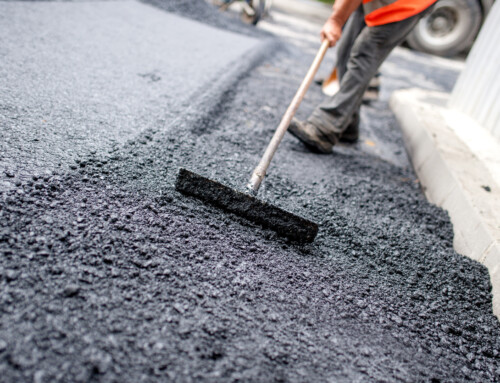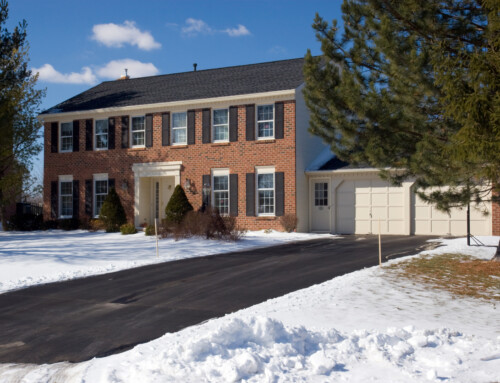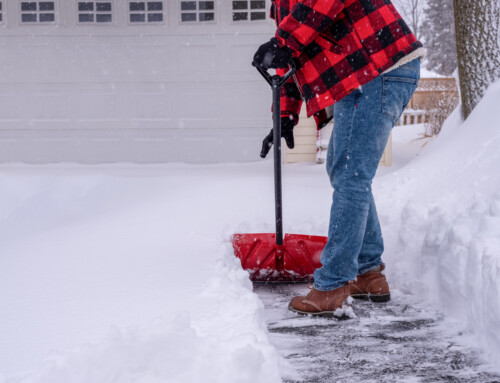
Asphalt is a common paving material. It’s the hard black surface you see on most major roads and highways, as well as parking lots and driveways. It is the preferred material for paving due to many benefits, including aesthetics and durability.
One of the characteristics of asphalt is that it is affected by heat. It is able to expand and contract with changes in temperature, which is both beneficial and detrimental. Learn how heat affects asphalt so that you can prevent damage to your asphalt surfaces.
What is Asphalt?
Asphalt is made up of aggregates (rocks, sand, gravel) and petroleum. The petroleum is made into a sticky substance called bitumen that blends with the aggregates to form a malleable material that is laid down and steamrolled to make a smooth surface. Once it dries and hardens it will stay solid for many years.
The Effects of Heat on Asphalt
The petroleum portion of asphalt is affected by heat and cold. When it heats up it expands and when it cools down it contracts. This frequent expanding and contracting can eventually cause the asphalt to become weak and develop cracks.
Temperatures above 90 degrees cause significant expansion of asphalt, which can occur often in the summertime. Then when it cools down it contracts, such as after a rainstorm. When the contraction is quick, there is a higher chance of damage to the asphalt, such as cracking or buckling.
How to Prevent Heat Damage to Asphalt
What can you do to prevent heat damage to your asphalt surface? The first line of defense is sealcoating. Applying a layer of sealcoating every 1-3 years can protect your asphalt from heat damage. Sealing asphalt prevents it from drying out and becoming brittle by keeping it well lubricated. The sealcoat seals in the natural moisture of the petroleum in asphalt. This holds it together and allows it to expand and contract without damage.
How to Repair Heat Damage to Asphalt
If your asphalt is already damaged, there are ways to repair it. There are 4 levels of asphalt repair:
- Crack sealing. Small cracks are relatively easy to repair. Cracks can be filled with a sealing material that prevents moisture from seeping into the sublayers of the asphalt.
- Asphalt repair. When cracks are large or deep, or if the asphalt is buckled or has potholes, then the asphalt needs to be repaired. This may involve removing some of the top layer of asphalt in certain spots and patching it with new asphalt.
- Asphalt resurfacing. When a significant portion of the asphalt is damaged, it may need to be resurfaced. This involves scraping the top layer of asphalt off the entire surface and laying down a whole new layer on top.
- Asphalt replacement. Extensive damage to the asphalt and the sublayers below may require complete asphalt replacement. This means the asphalt is broken up and removed, the sublayers are repaired, and new asphalt is laid.
Asphalt Can Be Made For All Temperatures
Although temperatures above 95 degrees Fahrenheit (35 Celsius) are more likely to cause damage to asphalt, there are different types of asphalt that can withstand hotter temperatures. Asphalt can be manufactured specifically for the weather in the area where it will be laid. This minimizes the effects of weather on asphalt surfaces.
Prevent or Repair Asphalt Damage With TopWest Asphalt
TopWest asphalt provides a wide range of asphalt maintenance and repair services for residential and commercial properties. We can apply sealcoating to your driveway to protect it from the damaging effects of fluctuating temperatures. If your asphalt already shows signs of damage, we can provide the necessary repairs to restore the condition of your asphalt. TopWest asphalt can help you get the maximum number of years out of your asphalt surfaces.
Call 604-755-0300 or contact us today to learn more and schedule a free estimate.





